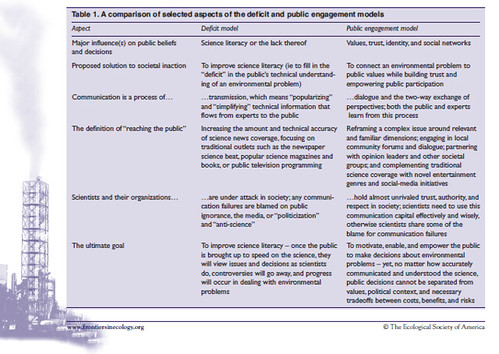We review past studies on how scientists view the public, the goals of communication, the performance and impacts of the media, and the role of the public in policy decision-making. We add to these past findings by analyzing two recent large-scale surveys of scientists in the UK and US. These analyses show that scientists believe the public is uninformed about science and therefore prone to errors in judgment and policy preferences. Scientists are critical of media coverage generally, yet they also tend to rate favorably their own experience dealing with journalists, believing that such interactions are important both for promoting science literacy and for career advancement. Scientists believe strongly that they should have a role in public debates and view policy-makers as the most important group with which to engage. Few scientists view their role as an enabler of direct public participation in decision-making through formats such as deliberative meetings, and do not believe there are personal benefits for investing in these activities. Implications for future research are discussed, in particular the need to examine how ideology and selective information sources shape scientists’ views.
The current post on Nisbet's blog discusses the article further and includes the following informative graphic summarizing the difference between the deficit model (which most scientists accept and practice) and the alternative public engagement model of science sommunication.

https://ecologicalsociology.blogspot.com/2011/09/should-we-leave-science-communication.html?sc=1771495715812#c3079692352155580192
ReplyDelete